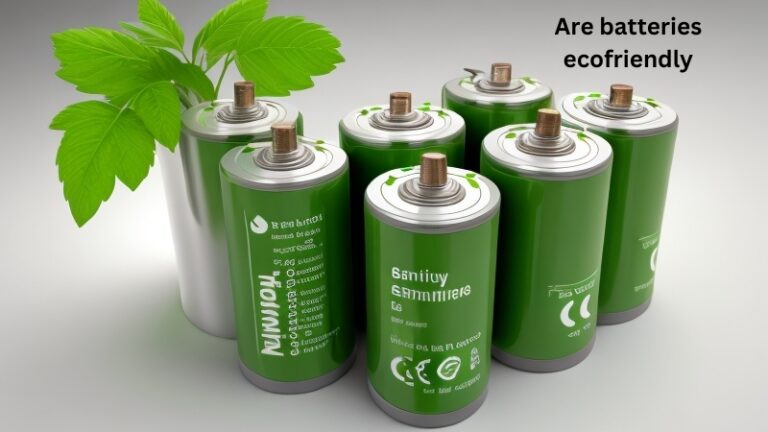Does Eco-Friendly Pest Control Really Work? Exploring The Efficacy
Wondering if eco-friendly pest control really works? The answer is a resounding yes! With increasing concerns about the harmful effects of chemical-based pest control methods on our health and the environment, more and more people are turning to environmentally friendly alternatives. These innovative solutions promise effective pest control while minimizing the use of synthetic chemicals. By harnessing the power of nature, eco-friendly pest control methods offer a sustainable and safe approach to managing pests. In this article, we will delve into the effectiveness of eco-friendly pest control and explore how it can effectively tackle your pest problems without compromising on your health or the environment. Let’s dive in!
Does Eco-Friendly Pest Control Work?
Introduction
When it comes to dealing with pests, many people are concerned about the potential health risks associated with traditional pest control methods. That’s where eco-friendly pest control comes into play. This approach aims to tackle pest problems while minimizing harm to the environment and human health. But does eco-friendly pest control actually work? In this article, we will delve into this question and explore the effectiveness of eco-friendly pest control methods.
The Need for Eco-Friendly Pest Control
Pests can be a nuisance, causing damage to property and posing health risks to humans and pets. Traditional pest control methods often involve the use of toxic chemicals that can have negative effects on the environment. These chemicals may contaminate soil, water sources, and even the air we breathe. By adopting eco-friendly pest control, we can address pest issues in a way that minimizes the impact on our planet and promotes the well-being of all living beings.
The Effectiveness of Eco-Friendly Pest Control
1. Pest Identification and Prevention:
– Effective eco-friendly pest control starts with identifying the specific pests causing the problem. By understanding their behavior and biology, targeted prevention methods can be employed.
– Implementing preventative measures, such as sealing cracks and gaps, removing food sources, and maintaining proper waste management practices, can help deter pests from entering your property.
2. Natural Repellents and Deterrents:
– Eco-friendly pest control utilizes natural repellents and deterrents to keep pests away. These can include substances like essential oils, plants with pest-repellent properties, or even the use of physical barriers.
– For example, peppermint oil is known to repel spiders, while planting marigolds can help deter mosquitoes.
3. Biological Control:
– Biological control involves introducing natural predators, parasites, or pathogens to control pest populations. This method works particularly well for specific pests and can help maintain a balanced ecosystem.
– For instance, ladybugs are often introduced to control aphid populations in gardens, reducing the need for chemical pesticides.
4. Integrated Pest Management (IPM):
– IPM is an approach that combines multiple pest control tactics to achieve long-term effectiveness. It involves assessing the pest problem, considering all available control methods, and selecting the most environmentally friendly and effective solutions.
– By integrating various strategies such as pest monitoring, habitat modification, and targeted pesticide use only when necessary, IPM minimizes the overall environmental impact while effectively managing pests.
The Benefits of Eco-Friendly Pest Control
1. Environmental Benefits:
– Eco-friendly pest control methods reduce the use of harmful chemicals that can contaminate soil, water, and air.
– They promote biodiversity by encouraging the presence of natural predators and beneficial insects in the ecosystem.
2. Health Benefits:
– By avoiding toxic chemicals, eco-friendly pest control helps protect human health, preventing potential allergic reactions, respiratory problems, and other health issues associated with traditional pest control methods.
3. Cost-Effective:
– While some eco-friendly pest control methods may require more effort in the initial stages, they can lead to long-term cost savings by minimizing the need for expensive chemical treatments and repairs caused by pest damage.
4. Sustainable Approach:
– Eco-friendly pest control aligns with sustainability principles, promoting responsible practices that safeguard the environment for future generations.
Limitations of Eco-Friendly Pest Control
1. Effectiveness Variability:
– The effectiveness of eco-friendly pest control methods may vary depending on the specific pest species, severity of the infestation, and environmental factors.
– Certain pests may require additional measures or a combination of eco-friendly and traditional methods for effective control.
2. Time and Patience:
– Eco-friendly pest control methods often require more time and patience to achieve desired results compared to chemical treatments that provide quick eradication.
– Some methods, such as biological control, may take time to establish a natural balance in the ecosystem.
3. Professional Expertise:
– While some eco-friendly pest control methods can be implemented by homeowners, others may require professional expertise. Consultation with a pest control expert may be necessary for more complex infestations.
Eco-friendly pest control offers an effective and sustainable alternative to traditional pest control methods. By adopting a holistic approach that includes pest identification, prevention, natural repellents, biological control, and integrated pest management, we can effectively manage pest problems while minimizing harm to the environment and human health. While it may require more effort and patience, the long-term benefits of eco-friendly pest control make it a worthwhile choice for a healthier and more sustainable living environment.
Frequently Asked Questions
Does eco-friendly pest control work?
Eco-friendly pest control methods can be effective in managing pest populations. By using natural and organic products, eco-friendly pest control aims to control pests while minimizing harm to the environment, humans, and non-targeted species. These methods typically involve the use of biological controls, such as predators or parasites, or the use of non-toxic substances like essential oils and botanical extracts. While the effectiveness may vary depending on the specific pest and circumstances, eco-friendly approaches can provide long-term solutions and are generally safe alternatives to conventional pest control methods.
What are the benefits of eco-friendly pest control?
Eco-friendly pest control offers numerous benefits. Firstly, it reduces the reliance on harmful chemical pesticides, thus minimizing the potential risks associated with their use. Secondly, it helps protect the environment by promoting the use of natural and sustainable pest control methods. Additionally, eco-friendly pest control methods are often safer for humans and pets, making them ideal for use in homes and around vulnerable populations. Moreover, these methods can contribute to the preservation of beneficial insects and other organisms, promoting a healthy and balanced ecosystem.
Are eco-friendly pest control methods as effective as conventional methods?
While eco-friendly pest control methods can be highly effective, the efficacy may vary depending on the specific pest, the severity of the infestation, and proper implementation of the chosen method. In some cases, conventional methods may provide faster or more immediate results, but eco-friendly approaches focus on sustainable long-term solutions. By addressing the root causes of pest problems and promoting natural ecological balances, eco-friendly pest control methods can provide effective and lasting control over time.
Can eco-friendly pest control be used in commercial settings?
Absolutely. Eco-friendly pest control methods can be used in commercial settings just as effectively as in residential settings. In fact, many businesses, including restaurants, hotels, and offices, are embracing eco-friendly approaches to manage pests while prioritizing the safety of employees and customers. It is essential to consult with professional pest control services experienced in eco-friendly methods for tailored solutions that meet the specific needs of commercial establishments.
Are there any drawbacks to eco-friendly pest control?
While eco-friendly pest control methods offer numerous advantages, there can be some limitations. For instance, certain pests may require specific treatments that are unavailable or less effective in eco-friendly options. Additionally, eco-friendly methods may take longer to achieve complete eradication compared to conventional approaches. It is important to consult with pest control experts who specialize in eco-friendly methods to determine the most suitable course of action for your specific pest problem.
Final Thoughts
Eco-friendly pest control has gained significant attention as a more sustainable alternative to traditional methods. This article explored the effectiveness of eco-friendly pest control and its ability to combat pest infestations while minimizing harm to the environment. Numerous studies and real-life examples have showcased the success of eco-friendly pest control in effectively managing and preventing pest issues. By utilizing natural and non-toxic solutions, eco-friendly pest control techniques offer a safer and healthier approach for households and the environment. Overall, the evidence points towards the efficacy of eco-friendly pest control, making it a valuable option for those seeking a sustainable and effective way to address pest problems.


